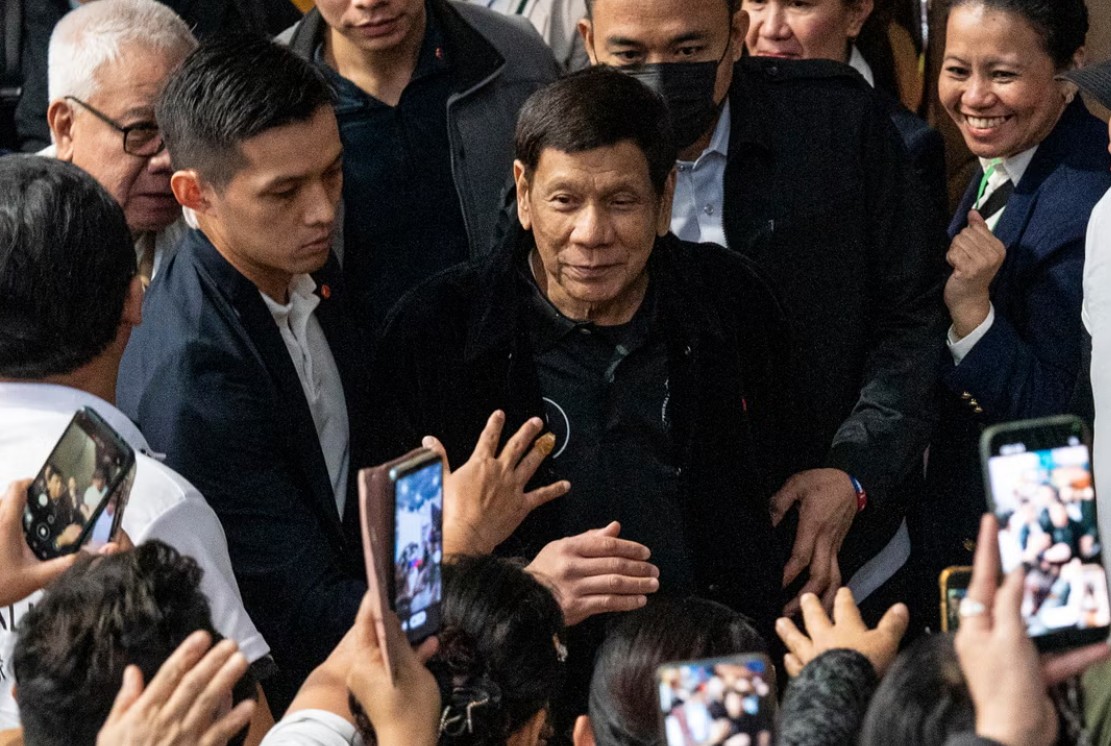
Rodrigo Duterte's ICC Case: Legal Questions and Political Implications
Rodrigo Duterte, who served as President of the Philippines from 2016 to 2022, currently faces charges of crimes against humanity at the International Criminal Court (ICC) in The Hague. His dramatic arrest and swift transfer to the ICC on March 11, 2025, has sparked intense debate about the legality of the Philippine government’s actions and whether he should be returned to his home country.
The Arrest and Transfer
On March 11, Duterte was arrested by Philippine police and Interpol agents at Manila’s Ninoy Aquino International Airport after returning from Hong Kong. He was quickly transferred to The Hague to face charges related to his controversial “war on drugs” campaign. The 79-year-old former president appeared before the ICC on March 14 and is currently in ICC custody, with his next court appearance scheduled for September.
The Philippine government under President Ferdinand Marcos Jr. has defended the arrest, stating it was conducted properly at the request of Interpol and not in direct collaboration with the ICC. Justice Secretary Juanito Remulla claimed the handover was justified under “international humanitarian law” despite assertions that the ICC lacks authority over the Philippines.
Legal Questions
The legality of Duterte’s arrest has become a contentious issue. His supporters argue the arrest was unlawful because the Philippines withdrew from the ICC in 2019 during Duterte’s presidency. Vice President Sara Duterte, the former president’s daughter, has called it “patently an illegal arrest” and “a blatant affront to our sovereignty.”
However, legal experts point out that the ICC maintains jurisdiction over crimes allegedly committed during the Philippines’ membership between 2011 and 2018, even after withdrawal. Former ICC judge Raul Pangalangan has argued that the arrest was fundamentally legal, citing precedents from other international cases.
Duterte’s attorney, Salvador Medialdea, protested during a pre-trial hearing that the former president’s transfer was an act of “extrajudicial rendition” or “pure and simple kidnapping.”
The “War on Drugs” and ICC Investigation
The charges against Duterte stem from his aggressive anti-drug campaign, which began immediately upon his taking office in 2016. During this campaign, government data indicates that at least 6,000 people were killed in police operations. However, human rights organizations and the ICC estimate the actual death toll could be between 12,000 and 30,000, including victims of vigilante-style killings.
The ICC alleges there are “reasonable grounds” to prosecute Duterte for murder as a crime against humanity. In his defense, Duterte has consistently maintained that his crackdown aimed to eliminate street crime and that he only instructed police to act in self-defense.
Political Context
Duterte’s arrest cannot be separated from the complex political dynamics in the Philippines. In 2022, the Marcos and Duterte families formed a political alliance that resulted in Ferdinand Marcos Jr. becoming president and Sara Duterte becoming vice president. However, this relationship has since deteriorated dramatically.
The rapid action to arrest and extradite Duterte illustrates how quickly political alliances can shift. Some observers view the government’s cooperation with Interpol as politically motivated, while President Marcos has stated that Duterte’s arrest was “proper and correct” and not an act of political persecution.
What Happens Next
Duterte will likely challenge the court’s jurisdiction and the admissibility of the case. This process could take months, and if the case progresses to trial, it could take years. He will be able to apply for provisional release while awaiting trial, though judges will decide whether to grant such a request.
If convicted, Duterte could face a maximum sentence of life imprisonment. His case represents a significant test for the ICC, which has faced criticism for its effectiveness and perceived selectiveness in pursuing justice.
The situation continues to develop as tensions rise in the Philippines, with Duterte’s supporters demanding his return while victims’ families and human rights groups view the arrest as long-overdue accountability.